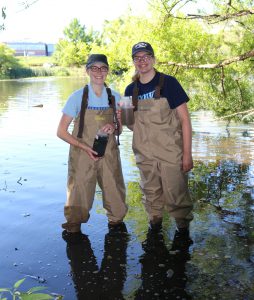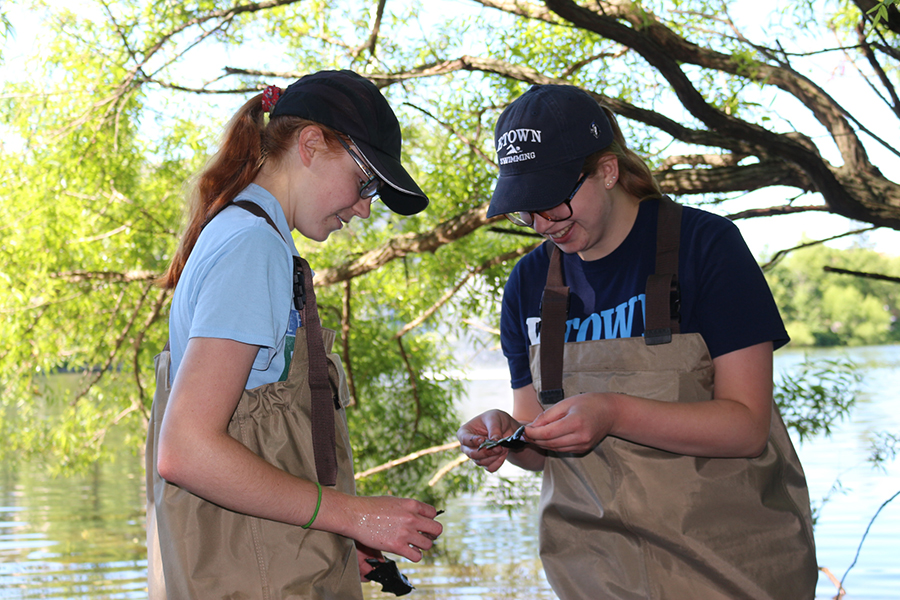A pair of Elizabethtown College students are donning their waders and boots to investigate Lancaster County lakes, searching for the presence of hydra model organisms. The independent student research and collaboration with an Etown faculty mentor, is part of the Summer Scholarship, Creative Arts and Research Projects (SCARP) program.
Title of Research
Distribution of Hydra Species in Lancaster County Lakes
Student Researchers
Kayla Morrill ‘22 (Biology major) and Katie Hollen ‘22 (Environmental Science major)
Faculty Mentor
Diane Bridge, Associate Professor of Biology
What are you researching?
Kayla: Hydra are model organisms for various research purposes. However, little is known about their distribution. In our research, we are investigating six lakes in Lancaster County(including Lake Placida) to determine whether hydra are present, and if so, what species and their mode of reproduction.
Katie: We are using morphological features and PCR (Polymerase Chain Reaction) to identify the species. We are also recording water quality data and maintaining stocks of collected hydra from the six locations.
Why did you choose this topic?
Kayla: As a biology major, I am very excited about conducting fieldwork and gaining valuable experience in the lab. I am interested in marine biology, especially jellyfish, so working with Hydra is a great way to start my career since hydra are freshwater relatives to jellyfish.
Katie: As an environmental science student, this project is giving me experience both in the field and in the lab- sampling, working with DNA and learning species identification, all skills that will be valuable in my career.
What is the most interesting aspect of this research?
Kayla: My favorite part of our research project is that I get to sample different lakes and examine aquatic biodiversity. Learning to identify various organisms is a great highlight of our research as well! We’re finding that Lake Placida actually contains the most hydra of the lakes we have researched so far.
Katie: For me, the most interesting aspect of this research is getting to sample at our six locations, because it’s really cool to see what kind of aquatic and terrestrial species you can find at the different lakes.
How has Professor Bridge helped you throughout this experience?
Kayla: Also known as the certified hydra expert, Dr. Bridge is a wonderful mentor that brings a lot of knowledge and expertise to the research. She assists in any way she can especially in all of the questions we ask (hydra related and not)!
Katie: She’s an amazing mentor with incredible knowledge that she is always willing to share. She puts up with endless questions, and always keeps us thinking about future research and real-world applications of our work.
Hear from the Faculty Mentor – Diane Bridge
“I really enjoy doing research with students through SCARP,” said Bridge. “Kayla and Katie are both very enthusiastic about environmental science and also capable and organized. They are planning on careers in environmental science, so experience doing original research will be valuable when they apply for jobs or for graduate school.”

